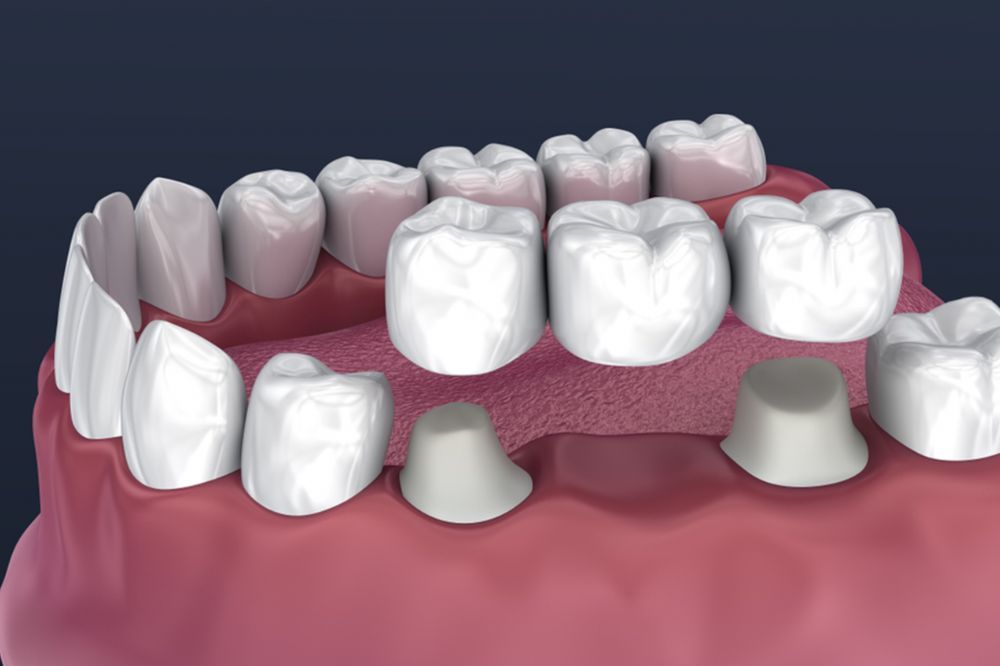A dental bridge can do more than change the way you look and feel; it can also make chewing difficult, speaking clearly hard, and having healthy teeth alignment. Should you be looking at replacing a missing tooth, then dental bridges in Orlando might just be an excellent choice to ponder.
What Is a Dental Bridge and How Does It Work?
A dental bridge is a fixed denture used to replace a lost tooth and fill the resulting gap. It is a manufactured tooth (a pontic) which is supported by the adjacent natural teeth or implants on either side of the space. The procedure involves:
- Preparation of the adjacent teeth for the bridge
- Creation of a bridge, especially designed to meet the needs of the individual
- Securing the bridge permanently in position for appearance and comfort
This choice re-establishes the function and appearance of your smile without removable appliances.
Can a Dental Bridge Replace Just One Missing Tooth?
Yes, bridges are typically employed to replace a single lost tooth. If only one tooth is missing, then the adjacent teeth act as a pillar to support the bridge firmly in place. These benefits:
- Stops nearby teeth from moving out of place
- Helps preserve the alignment of the bite
- Replaces chewing efficiency and aesthetic appeal
For most patients, this renders bridges a simple and effective option.
Is a Dental Bridge Better Than a Dental Implant?
The choice is up to your financial situation and the condition of your teeth. Here is a brief overview:
Dental Bridge:
- Faster to complete (typically within 2 visits)
- No surgery necessary
- Grinds surrounding teeth for support
Dental Implant:
- Surgically implanted into the jawbone
- Strong and not relying on the surrounding teeth
- Requires longer healing time and more upfront cost
If you don’t know what to choose is better suited to you, talking to a dental office in Orlando can assist in balancing the advantages and disadvantages with professional insight.
What Should You Consider Before Getting a Bridge?
If dental bridges are being considered, ask yourself:
- Are the teeth adjacent to you healthy enough to be able to have a bridge?
- Do you want a non-surgical option?
- Is time or expense an issue?
A dentist near you will assess to determine if your gums, bone, and teeth surrounding you are sturdy enough for a bridge.
What Are the Benefits of Choosing a Dental Bridge?
Dental bridges offer multiple benefits for patients with one missing tooth:
- Restore full chewing ability
- Prevent surrounding teeth from drifting out of place
- Maintain natural facial shape
- Improve speech clarity
- Provide a fast, minimally invasive solution
They’re often a great balance between function, cost, and convenience.
How Do You Care for a Dental Bridge?
Good hygiene maintains your bridge for years. Tips are:
- Brush morning and night, and floss beneath the bridge using a threader
- Steer clear of hard or sticky foods that can loosen the bridge
- Visit your dentist regularly for cleanings and checkups
Most patients who get dental bridges near you have 10–15 years of good, steady use with good hygiene.
Ready to Replace Your Missing Tooth?
A dental bridge might be the right fit if you want a fast, effective fix for one missing tooth. It helps preserve your bite, improve your smile, and prevent future problems. Book your consultation today with a CG dentist in Orlando and take the first step toward restoring your smile!
FAQs
- Are dental bridges natural-looking?
Yes, the bridges are now made to blend in with your own teeth as far as shape and color.
- Do I eat normally with a dental bridge?
Yes. After getting used to it, you can eat almost all food, but not hard or very sticky foods.
- How long does a dental bridge last?
With good care, a dental bridge can last 10 to 15 years or more.
- Does having a bridge hurt?
The procedure is generally painless with a local anesthetic. There can be some tenderness afterwards.
- Will a broken bridge be repaired?
Generally, yes. Your dentist can check and repair or replace the bridge if necessary.


